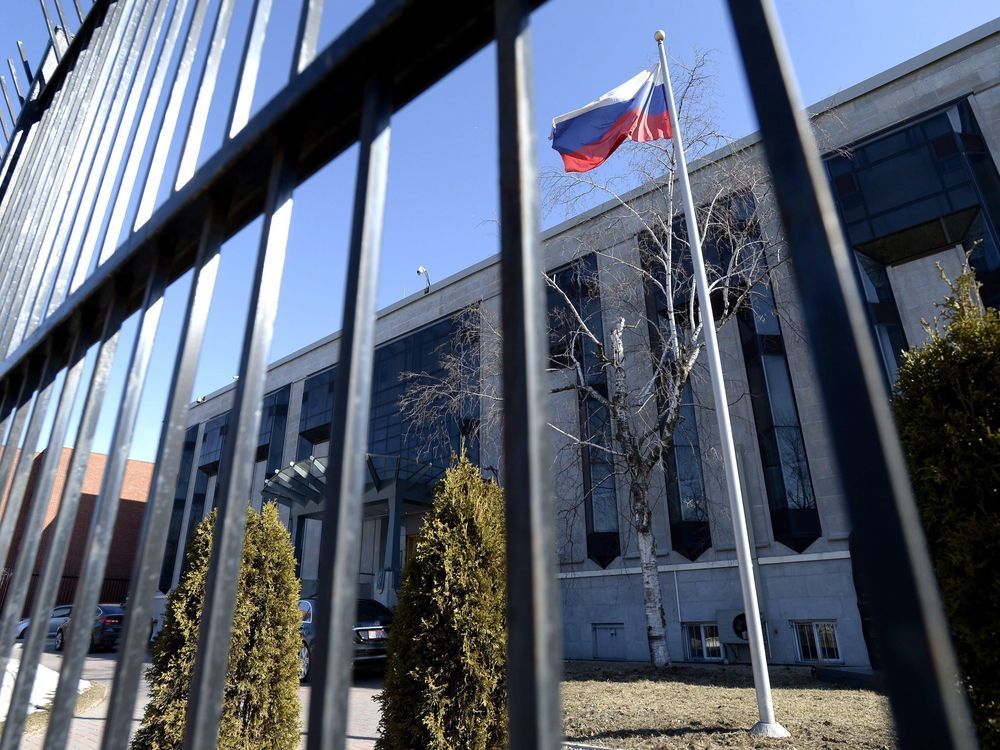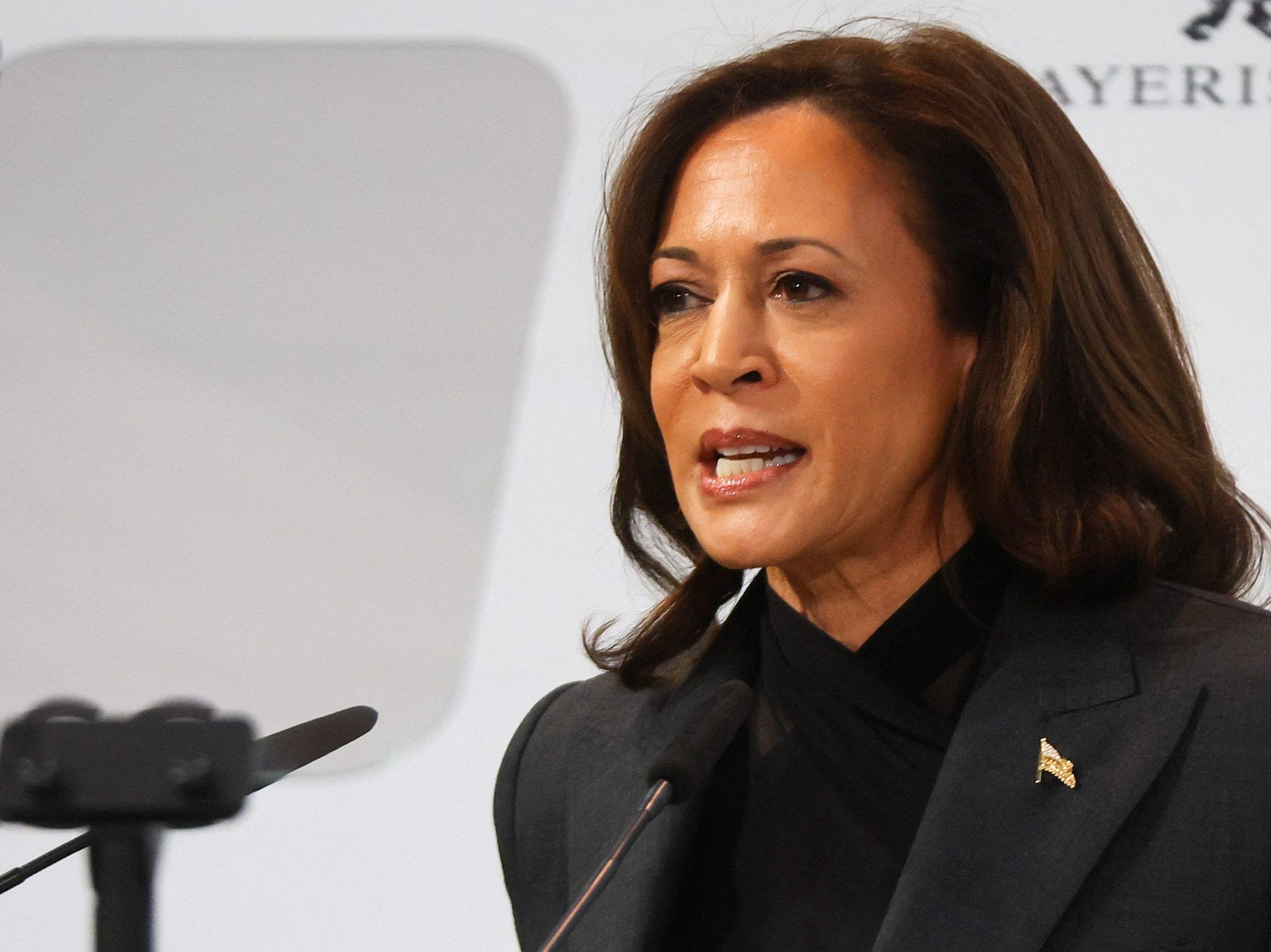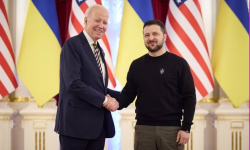That's what Im saying. He aint stallin'.Nah, that's because he wants to get the fuck out of Russia.
Omnibus Russia Ukraine crisis
- Thread starter B00Mer
- Start date
You are using an out of date browser. It may not display this or other websites correctly.
You should upgrade or use an alternative browser.
You should upgrade or use an alternative browser.
But they're not lennin him go eitherThat's what Im saying. He aint stallin'.
Pretty young recruit since you said you learned Tonne in grade 6I did, yeah. The USAF School of Applied Cryptologic Science.
It was late '70's early '80's when our older teachers were forced to introduce it to us in the Rurals, and it's still a mixed bag of measurements, we'll bury 24" pipe at 1.2m of cover lolWe were being taught metric and imperial side-by-side in the mid to late 70s when I was in school… because all of our textbooks where in imperial, but metric had already been brought in.
Canada made its first formal switch from imperial to metric units on April 1, 1975. That was the first day weather reports gave temperatures in degrees Celsius, rather than Fahrenheit. Many did not take kindly to the change.
April 1st, 1975, was unseasonably cool, with 100 per cent chance of complaints owing to the rare gust of bureaucratic change.
On his 6 p.m. broadcast the day Fahrenheit died, CBC weatherman Bill Lawrence informed a somewhat confused and cantankerous public that it was 1 degree Celsius. Then someone threw a pie in his face. https://www.thestar.com/news/insight/2015/03/29/forty-years-ago-celsius-came-to-canada-its-reception-brrrrrrrrr.html
Now on April 1st each year we just get this:
Canada Metric System Views
Canada Metric System Views explores how Canadians prefer a mix of metric and imperial systems and opinions on adopting metric fully.angusreid.org
View attachment 17275
Shoe sizes. Do you wear a size 11(?) or a 30cm(?) or a Euro Size 44? If you walked into damn near any shoe store in Canada and you asked for a 30 cm shoe, what would you get?It was late '70's early '80's when our older teachers were forced to introduce it to us in the Rurals, and it's still a mixed bag of measurements, we'll bury 24" pipe at 1.2m of cover lol
Any lumber store looking for lumber? I get it.
What the fuck are you babbling about?Pretty young recruit since you said you learned Tonne in grade 6
No. . . don't tell me. I don't care.
Russian ambassador claims Canada 'very dangerous country' to visit
Author of the article:Canadian Press
Canadian Press
Published Feb 13, 2023 • 2 minute read
OTTAWA — Russia’s ambassador in Ottawa claims Canada is unsafe for his compatriots to visit.
“Canada today is a very dangerous country for Russian citizens,” Oleg Stepanov said in a Russian-language interview last Friday.
“I would not recommend it for tourism, education or business.”
Stepanov told state news agency RIA Novosti that Canada keeps sanctioning people, which he deems to be an arbitrary response to the conflict in Ukraine.
He also claimed that Russians in Canada are regularly experiencing racism and bemoaned what he said are daily protests outside of Russia’s Ottawa embassy and its consulates in Montreal and Toronto.
“Russian-Canadian relations are now in a deep freeze,” Stepanov was quoted as saying.
He took aim at Canada’s intent to forfeit US$26 million held by a firm owned by Russian oligarch Roman Abramovich, which would be the first case under a new law that allows Ottawa to take possession of funds from sanctioned people and divert them to victims of wrongdoing.
As of late January, Ottawa had yet to actually file its court application. Stepanov said the idea amounts to an attack on property rights.
However, Stepanov added that most Canadians treat Russians well, and Moscow’s travel advisory for Canada only warns of street gangs and a “rather harsh climate.”
He also claimed that Russia has been unable to open a consulate in Vancouver. Global Affairs Canada has been asked to respond.
Stepanov said Russia is open to dialogue with Canada if it stops echoing U.S. policy, but Ottawa says change will only happen when Russia ends its invasion of Ukraine, and compensates that country for losses.
Earlier this year, a Russian woman living in Ottawa, Elena Pushkareva, said Stepanov denied her consular services over claims that her participation in a pro-democracy Facebook group amounted to a security risk.
Last year, Russia summoned Canada’s ambassador in Moscow over claims the RCMP and Global Affairs inadequately responded to security concerns, such as security footage that suggests someone threw a Molotov cocktail over the fence of the Ottawa embassy.
The Trudeau government has accused Russia of sowing chaos globally and summoned Stepanov over social media posts against LGBTQ people.
Last summer, a bicycle painted blue and yellow sat outside the embassy for weeks until a group spray-painted it black on Aug. 16.
The group also painted a large Z on the sidewalk and lamppost, which is a sign indicating support for Russia’s invasion of Ukraine. One passerby posted photos of the group, which appeared to have arrived on the scene in a car with diplomatic plates.
Stepanov’s interview last week called out the Canadian public for taking photos of diplomatic cars.

 torontosun.com
torontosun.com
Author of the article:Canadian Press
Canadian Press
Published Feb 13, 2023 • 2 minute read
OTTAWA — Russia’s ambassador in Ottawa claims Canada is unsafe for his compatriots to visit.
“Canada today is a very dangerous country for Russian citizens,” Oleg Stepanov said in a Russian-language interview last Friday.
“I would not recommend it for tourism, education or business.”
Stepanov told state news agency RIA Novosti that Canada keeps sanctioning people, which he deems to be an arbitrary response to the conflict in Ukraine.
He also claimed that Russians in Canada are regularly experiencing racism and bemoaned what he said are daily protests outside of Russia’s Ottawa embassy and its consulates in Montreal and Toronto.
“Russian-Canadian relations are now in a deep freeze,” Stepanov was quoted as saying.
He took aim at Canada’s intent to forfeit US$26 million held by a firm owned by Russian oligarch Roman Abramovich, which would be the first case under a new law that allows Ottawa to take possession of funds from sanctioned people and divert them to victims of wrongdoing.
As of late January, Ottawa had yet to actually file its court application. Stepanov said the idea amounts to an attack on property rights.
However, Stepanov added that most Canadians treat Russians well, and Moscow’s travel advisory for Canada only warns of street gangs and a “rather harsh climate.”
He also claimed that Russia has been unable to open a consulate in Vancouver. Global Affairs Canada has been asked to respond.
Stepanov said Russia is open to dialogue with Canada if it stops echoing U.S. policy, but Ottawa says change will only happen when Russia ends its invasion of Ukraine, and compensates that country for losses.
Earlier this year, a Russian woman living in Ottawa, Elena Pushkareva, said Stepanov denied her consular services over claims that her participation in a pro-democracy Facebook group amounted to a security risk.
Last year, Russia summoned Canada’s ambassador in Moscow over claims the RCMP and Global Affairs inadequately responded to security concerns, such as security footage that suggests someone threw a Molotov cocktail over the fence of the Ottawa embassy.
The Trudeau government has accused Russia of sowing chaos globally and summoned Stepanov over social media posts against LGBTQ people.
Last summer, a bicycle painted blue and yellow sat outside the embassy for weeks until a group spray-painted it black on Aug. 16.
The group also painted a large Z on the sidewalk and lamppost, which is a sign indicating support for Russia’s invasion of Ukraine. One passerby posted photos of the group, which appeared to have arrived on the scene in a car with diplomatic plates.
Stepanov’s interview last week called out the Canadian public for taking photos of diplomatic cars.

Russian ambassador claims Canada 'very dangerous country' to visit
Russia's ambassador in Ottawa says Canada is a "very dangerous country" for Russians to visit.
U.S. says Russia has committed crimes against humanity in Ukraine
Author of the article:Associated Press
Associated Press
Karl Ritter and Geir Moulson
Published Feb 18, 2023 • Last updated 1 day ago • 4 minute read
MUNICH — The United States has determined that Russia has committed crimes against humanity in Ukraine, Vice-President Kamala Harris said Saturday, insisting that “justice must be served” to the perpetrators.
Speaking at the Munich Security Conference, Harris said the international community has both a moral and a strategic interest in pursuing those crimes, pointing to a danger of other authoritarian governments taking advantage if international rules are undermined.
“Russian forces have pursued a widespread and systemic attack against a civilian population — gruesome acts of murder, torture, rape, and deportation,” Harris said. She also cited “execution-style killings, beatings, and electrocution.”
The Biden administration formally determined last March that Russian troops had committed war crimes in Ukraine and said it would work with others to prosecute offenders. A determination of crimes against humanity goes a step further, indicating that attacks against civilians are being carried out in a widespread and systematic manner.
“Russian authorities have forcibly deported hundreds of thousands of people, from Ukraine to Russia, including children,” Harris said. “They have cruelly separated children from their families.”
She also pointed to the attack in mid-March on a theater in the strategic port city of Mariupol where civilians had been sheltering, which killed hundreds, and to the images of civilians’ bodies left on the streets of Bucha after the Russian pullback from the Kyiv area last spring.
Harris said that as a former prosecutor and former head of California’s Department of Justice, she knows “the importance of gathering facts and holding them up against the law.”
“In the case of Russia’s actions in Ukraine, we have examined the evidence, we know the legal standards, and there is no doubt,” she said. “These are crimes against humanity.”
U.S. Secretary of State Antony Blinken, who also was attending the Munich conference, said in a statement issued as Harris spoke that “we reserve crimes against humanity determinations for the most egregious crimes.”
The new determination underlines the “staggering extent” of suffering inflicted on Ukrainian civilians and “also reflects the deep commitment of the United States to holding members of Russia’s forces and other Russian officials accountable for their atrocities,” he said.
In an address to his country on Saturday, Ukrainian President Volodymyr Zelenskyy said Kyiv this week had gotten “strong signals from our partners, specific agreements on the inevitability of holding Russia accountable for aggression, for terror against Ukraine and its people.”
“Every Russian attack on every corner of our state will have concrete legal consequences for the terrorist state,” Zelenskyy said, citing attacks not just in the past year of war but dating back to 2014, when fighting with Russia-backed separatists in eastern Ukraine first broke out.
The president did not refer specifically to Harris’ remarks or name any countries that had provided agreements on Russian accountability.
Russia’s nearly yearlong invasion of Ukraine, has dominated discussions at the Munich conference, an annual gathering of security and defence officials from around the world. Harris told the assembled participants: “Let us all agree — on behalf of all the victims, both known and unknown, justice must be served.”
“Such is our moral interest,” she said. “We also have a significant strategic interest.”
If Russian President Vladimir Putin succeeds in attacking international rules and norms, she said, “other authoritarian powers could seek to bend the world to their will, through coercion, disinformation and even brute force.”
Harris’ audience Saturday didn’t include any Russian officials. Conference organizers decided not to invite them this year.
While Western officials defended arms supplies to Ukraine, China’s top diplomat, Wang Yi, called for an end to the war through peace talks, saying Beijing was “deeply worried about the expansion and long-term effect of this war.”
China has refused to condemn Russia’s invasion of Ukraine or to impose sanctions on Moscow like Western nations have done. Without naming any countries, Wang said “there may be forces” that don’t want the war to stop anytime soon.
“What they care about is not the life and death of the Ukrainian people, nor the increasing damage to Europe. They probably have bigger strategic goals than Ukraine,” he said.
Asked on the sidelines of the event about the U.S. determination of crimes against humanity, Ukrainian Foreign Minister Dmytro Kuleba replied that “Russia waged a genocidal war against Ukrainians because they do not recognize our identity and they do not think we deserve to exist as a sovereign nation.”
“Everything that stems from that is crimes against humanity, war crimes and various other atrocities committed by the Russian army in the territory of Ukraine,” he said. “Let lawyers sort out specifically which act belongs where in terms of legal qualification.”
Zelenskyy had urged Western allies in a video address to the conference on Friday to quicken their military support for Ukraine.
Kuleba voiced confidence that Ukraine would eventually receive fighter jets from its partners, despite their current reluctance. He noted that they initially pushed back on providing other heavy weapons that were later delivered or promised.
In Munich on Friday, a Ukrainian deputy prime minister, Oleksandr Kubrakov, called for cluster munitions and phosphorous bombs, German media reported. Cluster munitions are banned by an international treaty.
Asked whether he supported calling for such weapons, Kuleba said Ukraine has evidence that Russia uses them.
“We are not party to the convention on the prohibition of cluster ammunition, so legally there are no obstacles for that,” he said. “And if we receive one, we will be using it exclusively against military forces of the Russian Federation.”
— Geir Moulson contributed to this report from Berlin.

 torontosun.com
torontosun.com
Author of the article:Associated Press
Associated Press
Karl Ritter and Geir Moulson
Published Feb 18, 2023 • Last updated 1 day ago • 4 minute read
MUNICH — The United States has determined that Russia has committed crimes against humanity in Ukraine, Vice-President Kamala Harris said Saturday, insisting that “justice must be served” to the perpetrators.
Speaking at the Munich Security Conference, Harris said the international community has both a moral and a strategic interest in pursuing those crimes, pointing to a danger of other authoritarian governments taking advantage if international rules are undermined.
“Russian forces have pursued a widespread and systemic attack against a civilian population — gruesome acts of murder, torture, rape, and deportation,” Harris said. She also cited “execution-style killings, beatings, and electrocution.”
The Biden administration formally determined last March that Russian troops had committed war crimes in Ukraine and said it would work with others to prosecute offenders. A determination of crimes against humanity goes a step further, indicating that attacks against civilians are being carried out in a widespread and systematic manner.
“Russian authorities have forcibly deported hundreds of thousands of people, from Ukraine to Russia, including children,” Harris said. “They have cruelly separated children from their families.”
She also pointed to the attack in mid-March on a theater in the strategic port city of Mariupol where civilians had been sheltering, which killed hundreds, and to the images of civilians’ bodies left on the streets of Bucha after the Russian pullback from the Kyiv area last spring.
Harris said that as a former prosecutor and former head of California’s Department of Justice, she knows “the importance of gathering facts and holding them up against the law.”
“In the case of Russia’s actions in Ukraine, we have examined the evidence, we know the legal standards, and there is no doubt,” she said. “These are crimes against humanity.”
U.S. Secretary of State Antony Blinken, who also was attending the Munich conference, said in a statement issued as Harris spoke that “we reserve crimes against humanity determinations for the most egregious crimes.”
The new determination underlines the “staggering extent” of suffering inflicted on Ukrainian civilians and “also reflects the deep commitment of the United States to holding members of Russia’s forces and other Russian officials accountable for their atrocities,” he said.
In an address to his country on Saturday, Ukrainian President Volodymyr Zelenskyy said Kyiv this week had gotten “strong signals from our partners, specific agreements on the inevitability of holding Russia accountable for aggression, for terror against Ukraine and its people.”
“Every Russian attack on every corner of our state will have concrete legal consequences for the terrorist state,” Zelenskyy said, citing attacks not just in the past year of war but dating back to 2014, when fighting with Russia-backed separatists in eastern Ukraine first broke out.
The president did not refer specifically to Harris’ remarks or name any countries that had provided agreements on Russian accountability.
Russia’s nearly yearlong invasion of Ukraine, has dominated discussions at the Munich conference, an annual gathering of security and defence officials from around the world. Harris told the assembled participants: “Let us all agree — on behalf of all the victims, both known and unknown, justice must be served.”
“Such is our moral interest,” she said. “We also have a significant strategic interest.”
If Russian President Vladimir Putin succeeds in attacking international rules and norms, she said, “other authoritarian powers could seek to bend the world to their will, through coercion, disinformation and even brute force.”
Harris’ audience Saturday didn’t include any Russian officials. Conference organizers decided not to invite them this year.
While Western officials defended arms supplies to Ukraine, China’s top diplomat, Wang Yi, called for an end to the war through peace talks, saying Beijing was “deeply worried about the expansion and long-term effect of this war.”
China has refused to condemn Russia’s invasion of Ukraine or to impose sanctions on Moscow like Western nations have done. Without naming any countries, Wang said “there may be forces” that don’t want the war to stop anytime soon.
“What they care about is not the life and death of the Ukrainian people, nor the increasing damage to Europe. They probably have bigger strategic goals than Ukraine,” he said.
Asked on the sidelines of the event about the U.S. determination of crimes against humanity, Ukrainian Foreign Minister Dmytro Kuleba replied that “Russia waged a genocidal war against Ukrainians because they do not recognize our identity and they do not think we deserve to exist as a sovereign nation.”
“Everything that stems from that is crimes against humanity, war crimes and various other atrocities committed by the Russian army in the territory of Ukraine,” he said. “Let lawyers sort out specifically which act belongs where in terms of legal qualification.”
Zelenskyy had urged Western allies in a video address to the conference on Friday to quicken their military support for Ukraine.
Kuleba voiced confidence that Ukraine would eventually receive fighter jets from its partners, despite their current reluctance. He noted that they initially pushed back on providing other heavy weapons that were later delivered or promised.
In Munich on Friday, a Ukrainian deputy prime minister, Oleksandr Kubrakov, called for cluster munitions and phosphorous bombs, German media reported. Cluster munitions are banned by an international treaty.
Asked whether he supported calling for such weapons, Kuleba said Ukraine has evidence that Russia uses them.
“We are not party to the convention on the prohibition of cluster ammunition, so legally there are no obstacles for that,” he said. “And if we receive one, we will be using it exclusively against military forces of the Russian Federation.”
— Geir Moulson contributed to this report from Berlin.

U.S. says Russia has committed crimes against humanity in Ukraine
The United States has determined that Russia has committed crimes against humanity in Ukraine, Vice-President Kamala Harris said Saturday.
Looks to me like he's exactly where he should be.
Zelensky's #1 supporter.

